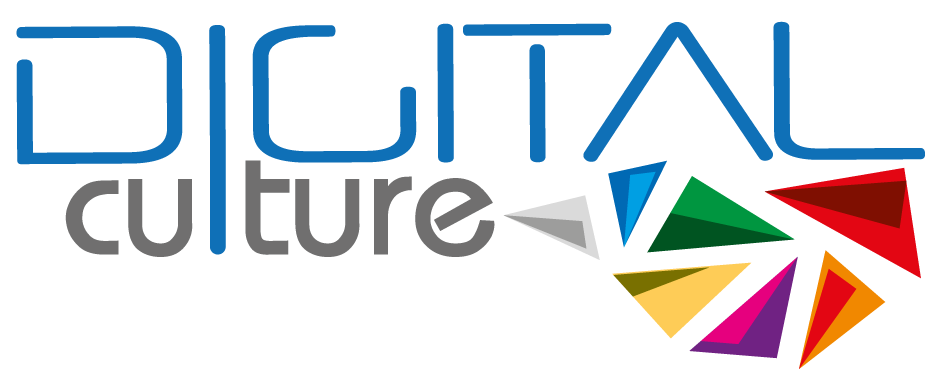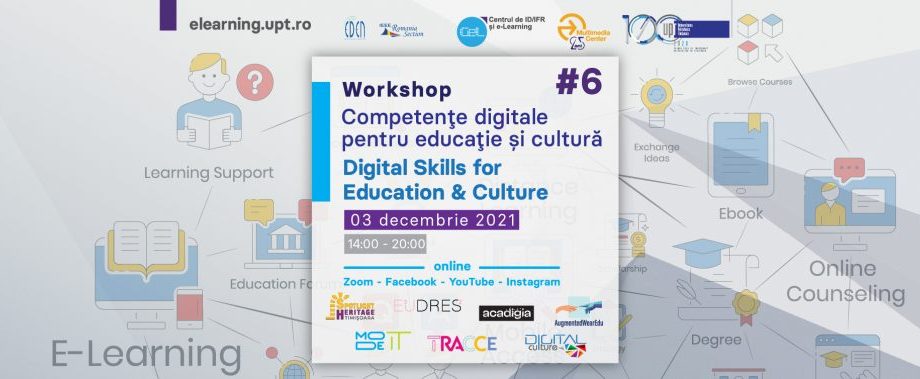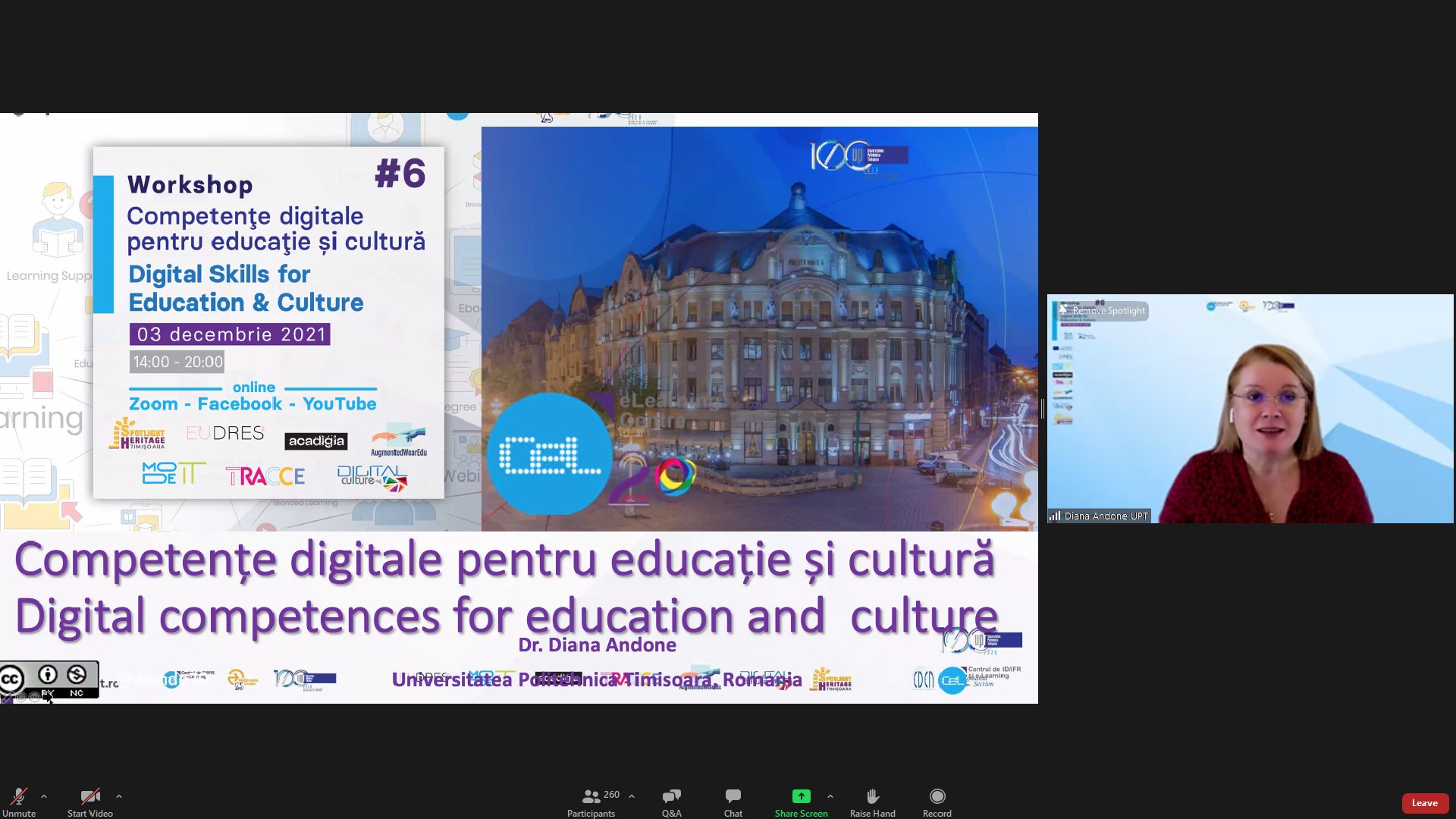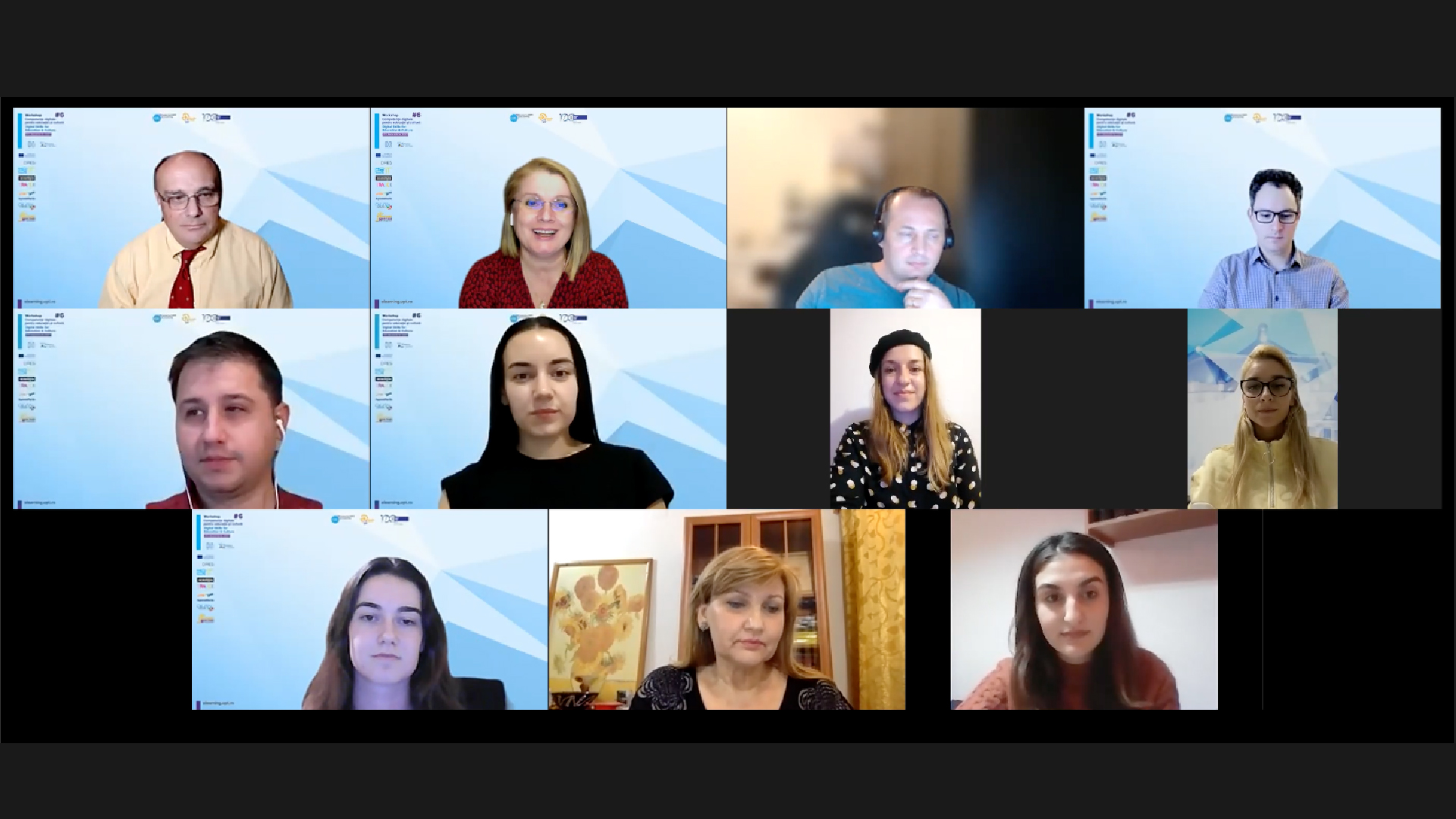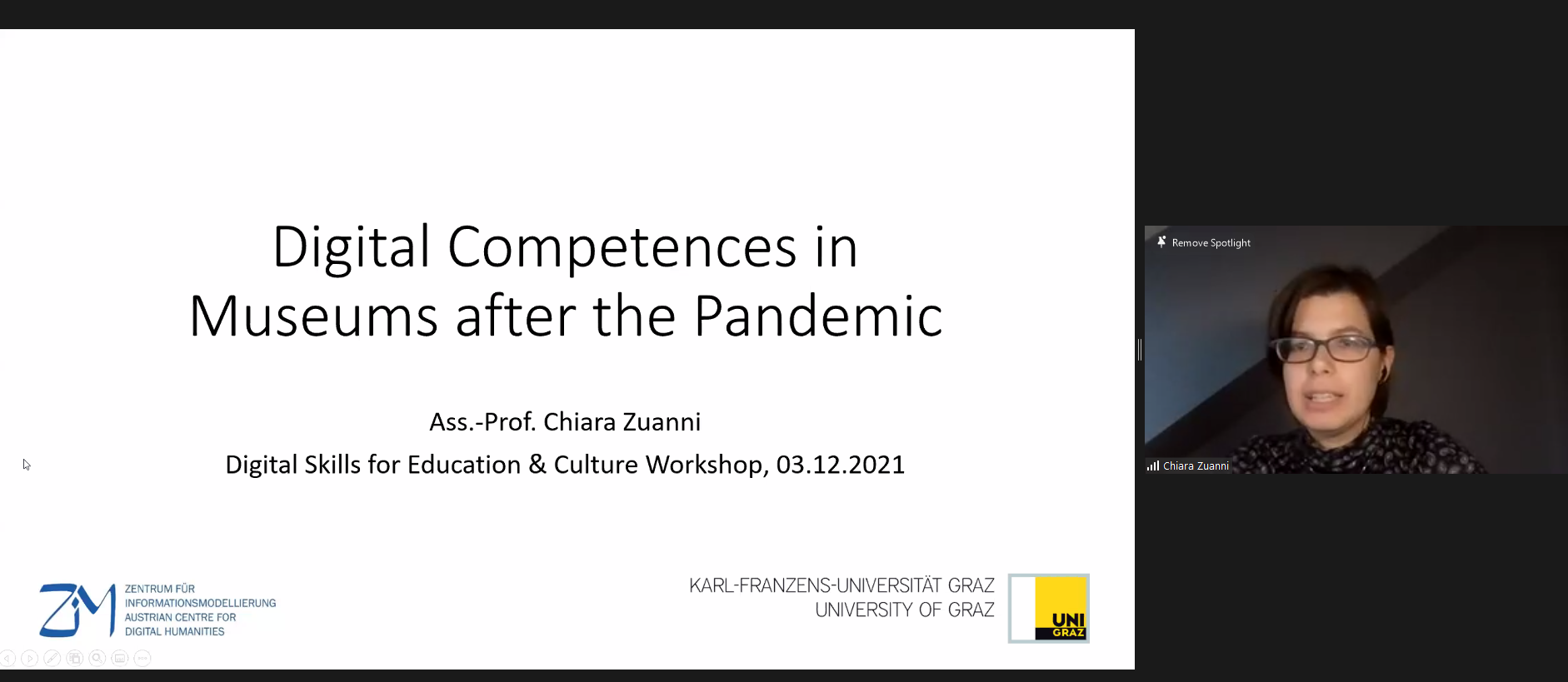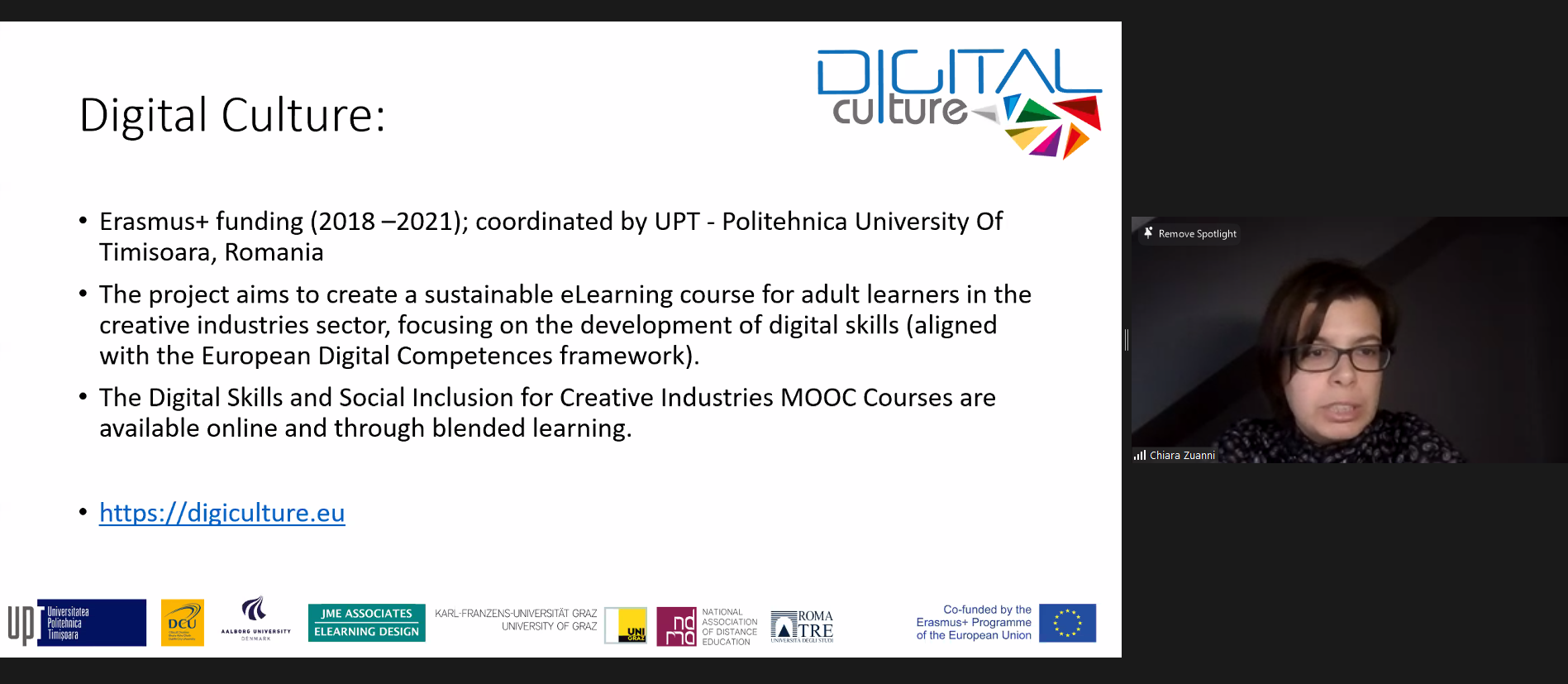The sixth edition of the international værksted dedicated 100% to digital skills in culture, education took place online on Friday, December 3, 2021, and brought over 35 international speakers, including both researchers and professors, as well as students and pupils. The topics presented included practical examples of the use and integration of #digital elements, #augmented & #virtualreality applications, and #artificialintelligence in higher and secondary #education, with case studies at the European level. Over 1,500 participants were present online and the event was addressed to all actors in the field of creative industries, culture, artists, students, academics, and more.
The DigiCulture project was presented in various sessions of the workshop, sessions with valuable content about transnational projects, aimed at raising the standards of digitalization and digital education and especially to open ways of collaboration and cooperation between European universities and institutions, with different innovative approaches that will contribute to the opening of education and educational resources and to support all actors in education and the creative industries.
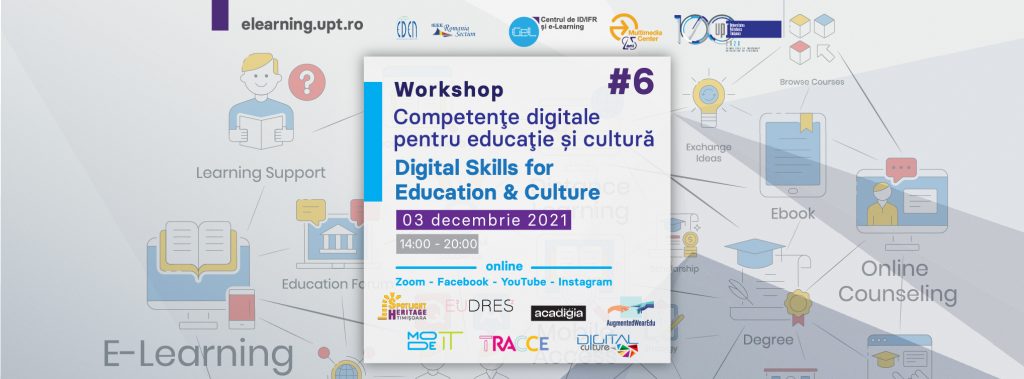
During the first part of the workshop, Dr. eng. Diana Andone, EDEN Senior Fellow & Director of the eLearning Centre of the Politehnica University of Timișoara, Romania, spoke about the DigiCulture project, its objectives, and also the issued Open Badges (digital certificates) in her presentation on Digital competences for education and culture.
Diana presented the vision for the development of digital skills for education and culture, through DigiCulture – Forbedring af digitale kompetencer og social integration af voksne i kreative industrier project initiatives that aims a large variety of people, from teachers who can find creative ways to interact with their students, people involved in the creative industries, and students who can find learning opportunities.
Dr. Chiara Zuanni, assistant professor, Centre for Information Modelling, University of Graz, Austria, also talked about the DigicCulture project in her presentation entitled Digital Competences in Museums after the Pandemic. Det topics addressed by Dr. Chiara Zuanni were how European and American museums have adapted their work during the pandemic and what projects have been developed to monitor and improve their work in the future.
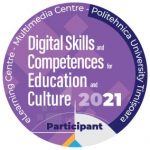
Context – DigiSkills 2021
Det Digital Skills for Education & Culture online international workshop was organized by the ID/IFR and e-Learning Centre, Politehnica University of Timisoara, in collaboration with the IEEE Romania Association and EDEN Europe. This year’s edition was focused on concepts such as Digital Competences, Digital Culture, Blockchain, Augmented and Virtual Reality, Experimental Media, and included case studies on the impact of the digital environment on culture and education in the last year.
Speakers
The international speakers were from countries such as Romania, Germany, Austria, Italy, Norway, Great Britain, the USA, Belgium, Greece. For the first time at this year's edition, the Romanian participants had the option to listen to the presentations in English translated into Romanian with the help of a live interpreter, provided by the ID / IFR and e-Learning Centre UPT.
Also for the first time, for more interactivity with the participants, each speaker sent a question related to the topic presented to the participants, who were able to answer live during the presentations, and at the end of each presentation, their answers were discussed by the presenters.
Reaching its sixth edition, the international workshop dedicated to digital skills gathered over 5,000 participants from the first edition in 2016, organized annually, in November or December. The first four editions took place, hybrid and in the UPT Conference Center, and from the 2020 edition, the workshop was held online, an opportunity that allowed a record number of participants and presenters from all over the world.
Watch the full event recording below:
